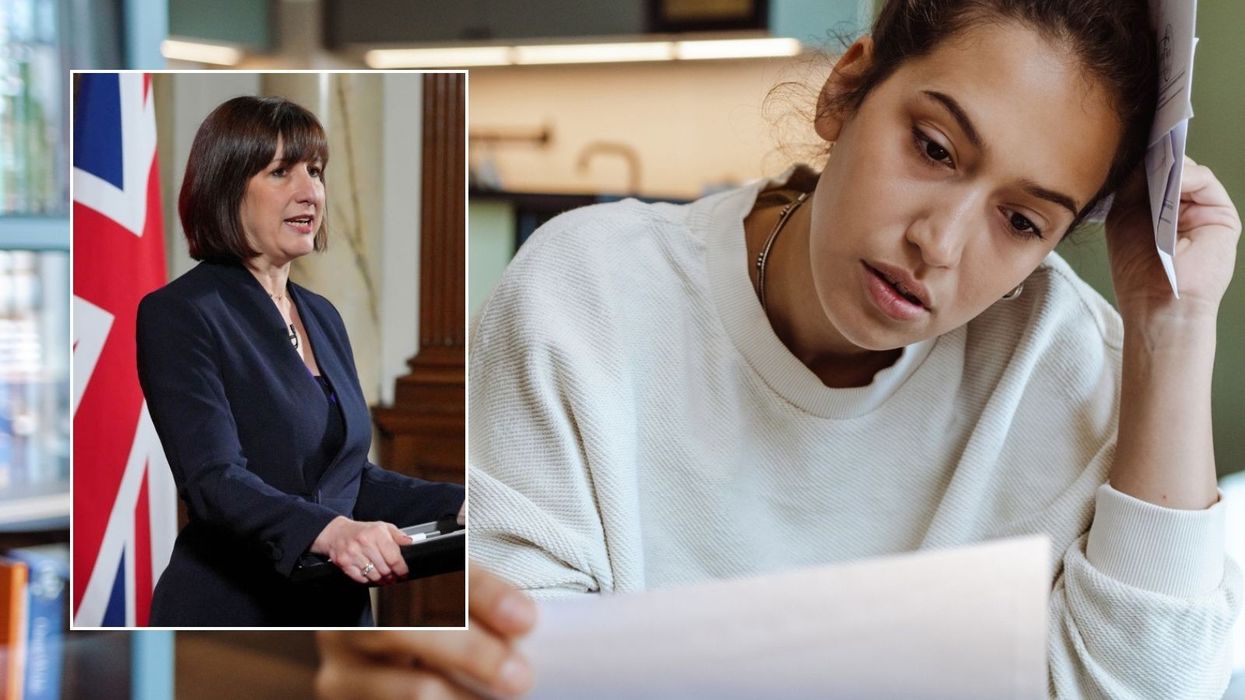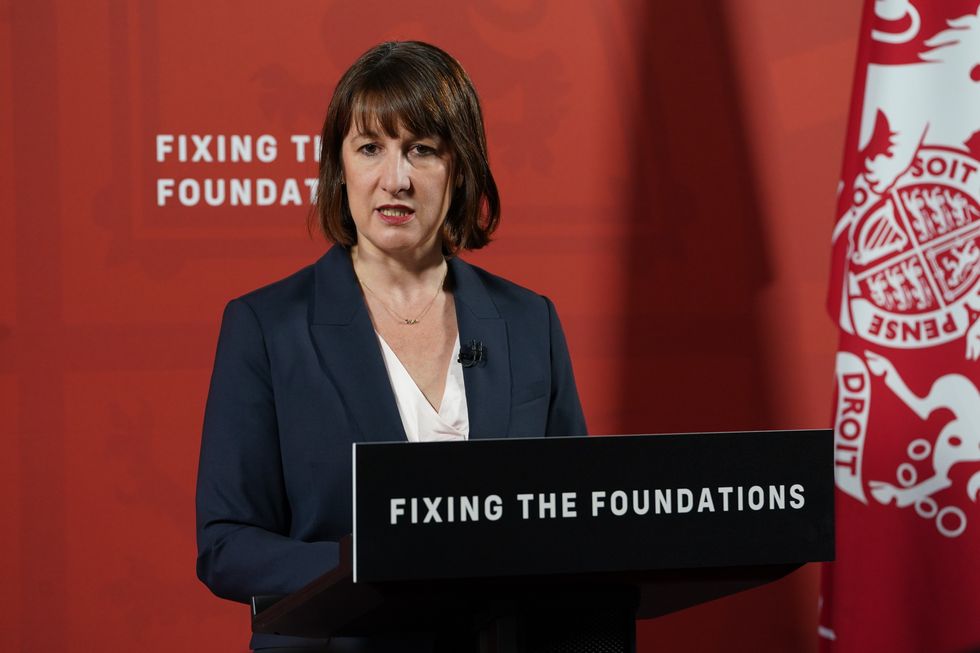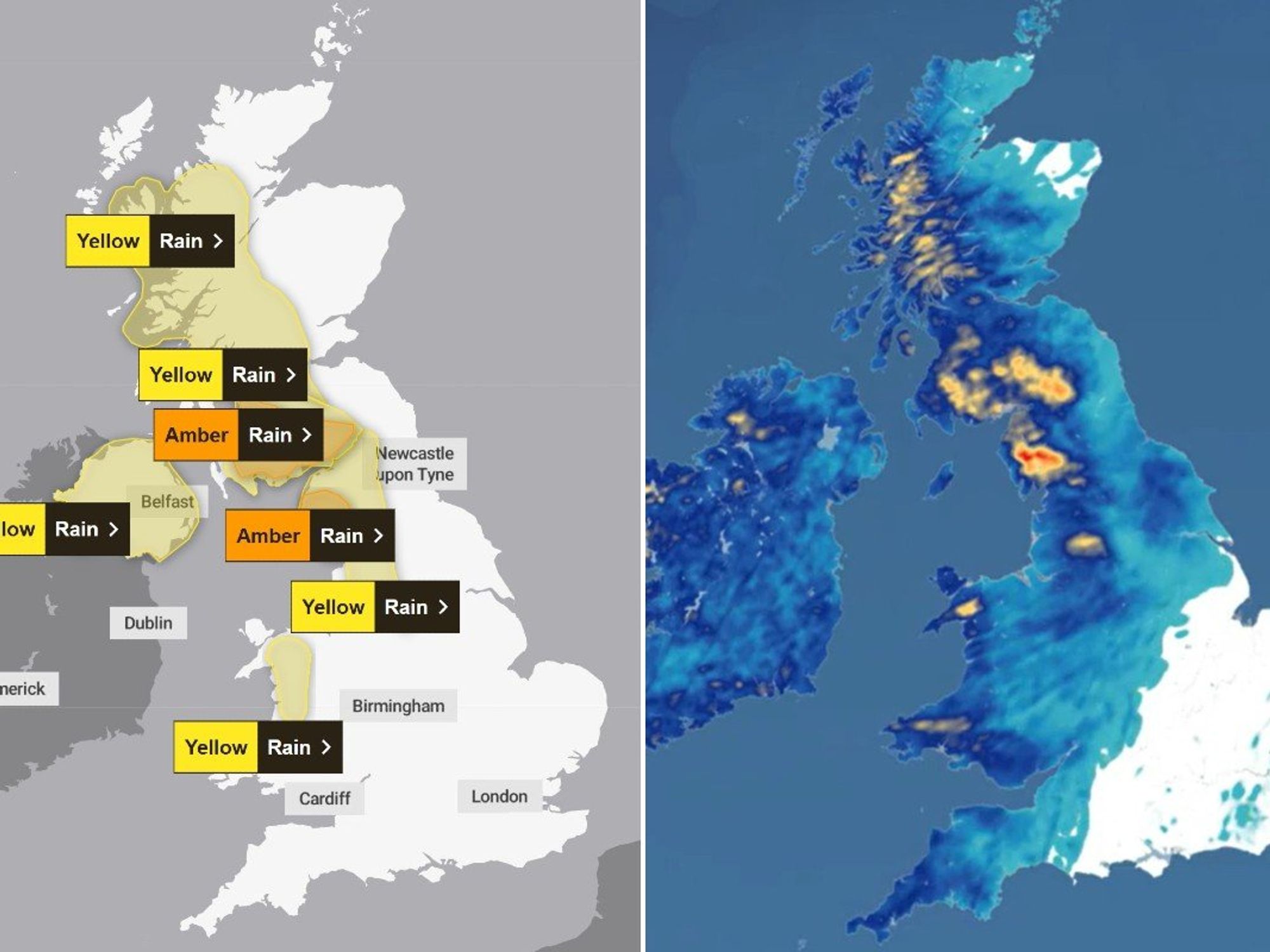Labour tax rises 'could be tipping point' for economy as borrowing costs surge: 'Clock is ticking!'

Labour is having to contend with soaring borrowing costs despite the fact the tax burden is at a high
|GETTY

Labour is reportedly preparing to raise taxes in the upcoming Autumn Budget
Don't Miss
Most Read
Analysts have warned the "clock is ticking" for the new Labour Government and Chancellor Rachel Reeves to get on top of public spending as borrowing costs in the UK surge with many predicting tax rises are on their way.
Public sector net borrowing came to £3.1billion last month which is £1.8billion more than a year ago and represents the largest borrowing bill for July since 2021, according to figures from the Office for National Statistics (ONS).
HM Revenue and Customs (HMRC) collected its highest tax takings ever for the month of July, brining in £82.5billion in July 2024 which is the highest tax takings ever for a month of July and up from £81.3billion a year earlier.
The combination of skyrocketing borrowing costs and the likelihood of tax hikes has analysts concerned about the trajectory of the UK economy.
Joe Neal, a manager at financial services firm Blick Rothenberg, said: "With the Government announcing that the amount of spending needed being ‘much worse than expected’, further tax rises are expected to be announced in the October budget.
"Taxpayers already are feeling that the tax burden is high and these tax rises could be the tipping point that drives wealthy individuals and large companies to leave the UK. Making Labour’s healthy tax income quickly disappear.”
Do you have a money story you’d like to share? Get in touch by emailing money@gbnews.uk.

Chancellor Rachel Reeves is reportedly considering raising taxes
| GettyFor the month, total borrowing as found to be £3billion more than projected by the Office for Budget Responsibility (OBR) and greater than the £1.1billion the majority of economists forecasts.
In the financial year from the end of March to July, borrowing was £51.4billion which is £500million less than in the same four-month period from last year.
However, it is the fourth highest year-to-July borrowing since monthly records were first recorded in January 1993, according to the ONS.
Last month, borrowing for June was revised lower to £13.5billion from £14.5billion.
Since taking over the Treasury, Reeves has pledged to tackle excess public spending and ease the tax burden on Britons.
However, the latest borrowing figures factor in the recent confirmation of public sector pay rises announced by Labour.
Despite this, the OBR claims the overshoot in borrowing compared with its forecast for the year to date “appears related to strong growth in public sector pay”.
John O’Connell, the chief executive of the TaxPayers' Alliance, warned that time is running out for Reeves to address the UK's economic woes.
He explained: "Taxpayers will be dismayed as Rachel Reeves prioritises public sector pay hikes over economic prudence.
"The Chancellor claimed she was committed to having debt falling as a share of Britain's GDP but these latest figures show where her real priorities lie.
LATEST DEVELOPMENTS:

GDP rose last quarter but economists are questioning whether this will be enough
| GETTY“The clock is ticking on this government to deal with our crippling debt and prove that they’re on the side of hard working families."
Despite gross domestic product (GDP) going up 0.6 per cent between April and June, economists are sounding alarm this will not be enough to course correct.
Isabel Stockton, senior research economist at the Institute for Fiscal Studies, added: "The early signs are that better-than-expected growth figures won’t be enough save Rachel Reeves from tough choices in her first Budget on October 30.
"The combination of in-year spending pressures identified at last month’s spending audit and the ongoing, and well known, pressures facing many public services suggest that the accompanying spending review for 2025-26 could be a particularly difficult exercise."










